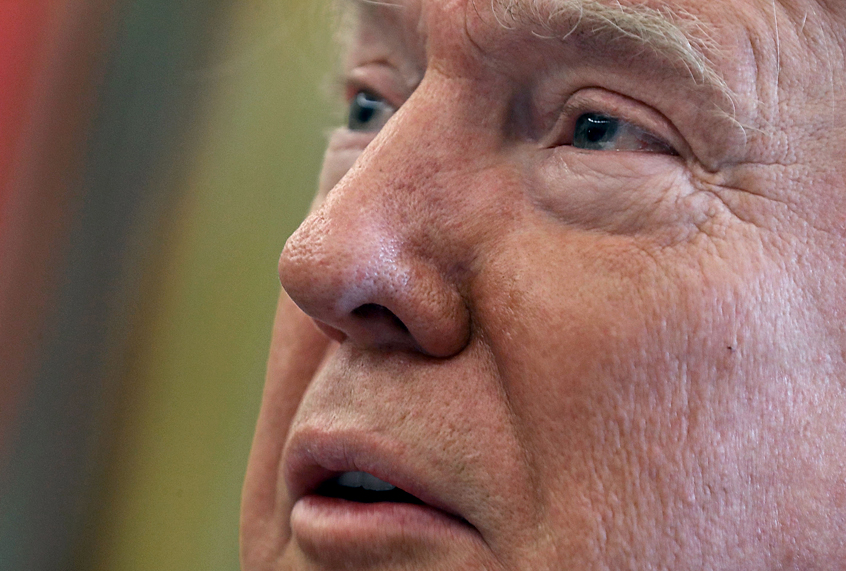President Donald Trump is losing support from the group that may serve as a bulwark against his future removal from office: independent voters.
A recent poll by the Washington Post/ABC News, 59 percent of independents disapprove of Trump’s performance as president, compared to 93 percent of Democrats and (in terms of approving) 78 percent of Republicans who think highly of him. Overall 60 percent of Americans disapprove of Trump and only 36 percent approve of him. There is a similar figure in terms of feelings toward the probe by special counsel Robert Mueller into potentially illegal activities by the president and members of his administration: Sixty-three percent of Americans overall support the Mueller investigation (52 percent support it strongly), including 85 percent of Democrats and 67 percent of independents. Only among Republicans is the probe still unpopular, with 61 percent of them opposing it.
Finally, when it comes to impeachment, 49 percent of Americans support Congress leading impeachment proceedings against the president while only 46 percent say that it should not do so. These numbers are identical among independents, who likewise break down with 49 percent supporting impeachment and 46 percent saying they would oppose it. By contrast, 75 percent of Democrats think Congress should begin impeachment proceedings against Trump and 82 percent of Republicans say they should not do so.
“I agree with Steve Bannon 100 percent: the mid-term elections are a referendum on the President and a vote for Republican House candidates is a vote to stop a bogus partisan impeachment,” Michael Caputo, a communications adviser for Trump’s 2016 presidential campaign, told Salon by email earlier this month. “I understand why some in the White House and official GOP organs may not behind this message — they have many reasons. But I’m not buying it: impeachment will definitely be on the Democrat agenda if they win the House, and this must be stopped. I’m not afraid to talk about this, regardless of where the Washington Republicans consultant class comes down on it.”
It is worth noting that the implications of these poll numbers are more directly threatening to Republicans up for reelection in Congress than for Trump himself.
In order for a president to be impeached, a simple majority in the House of Representatives have to agree on impeachment. For that president to be removed from office, however, two-thirds of the Senate would need to vote for that to happen. While Republicans only have 50 seats (51 if you count Arizona Gov. Doug Ducey’s eventual replacement for Sen. John McCain, who was also a Republican), they are also only facing reelection campaigns in nine states. This means that, even if Democrats won every single one of those seats and held on to the 24 seats that are being defended by either one of their own or a Democratic-leaning independent, they would still only have 58 votes to Republicans’ 42 votes — nowhere near enough to remove Trump from office without substantial Republican defections.
That said, of the nine races where Republicans are up for reelection, there are only four in which the Democratic candidate could realistically be considered competitive: Arizona (Republican Martha McSally versus Democrat Krysten Sinema), Nevada (Republican Dean Heller versus Democrat Jacky Rosen), Tennessee (Republican Marsha Blackburn versus Democrat Phil Bredesen) and Texas (Republican Ted Cruz versus Democrat Beto O’Rourke).

